List of MAP-related magazines: Difference between revisions
The Admins (talk | contribs) No edit summary |
The Admins (talk | contribs) |
||
| (35 intermediate revisions by 3 users not shown) | |||
| Line 1: | Line 1: | ||
{{Template:Lists}}__NOTOC__'''MAP-related magazines''' have been published over many decades. Publications vary from erotica titles of the 1970s, thru first wave activist titles, and more recently, online copies which combine features with non-nude photography. The variety of material aimed at MAPs appears to be as diverse and sometimes cereberal as that found in the mainstream, if not more so. | {{Template:Lists}}__NOTOC__'''MAP-related magazines''' have been published over many decades. Publications vary from erotica titles of the 1970s, thru first wave activist titles, and more recently, online copies which combine features with non-nude photography. The variety of material aimed at MAPs appears to be as diverse and sometimes cereberal as that found in the mainstream, if not more so. [[File:Kindervuist.png|thumb|300px|Listing for the [[NVSH]] (Sexual Freedom) Youth organization: Kindervuist, in NIKS, 1982]] | ||
[[File:Magpie 13.png|thumb|300px|Magpie's 13th edition]][[File:Beach Boy 13.jpg|thumb|300px|Beach Boy no13 in 1985]][[File:Bboy3.jpg|thumb|300px|''Beach Boy'' - Late adolescent material]] | |||
[[File:Gaie.jpg|thumb|300px|''Gaie France'']][[File:Gaie2.jpg|thumb|300px|''Gaie France'']][[File:Lolitabook3.jpg|thumb|300px|Legal ([[Wikipedia:Junior idol|Junior Idol]] type) content from Japan - some examples involve more sexual posing and lingerie]][[File:Magpie.jpg|thumb|300px|Magpie]][[File:COQ.jpg|thumb|300px|COQ Video (defunct and no longer operating) Mail Order Form]][[File:Chikun.jpg|thumb|300px|Examples of ''Chicken'']][[File:Lolitabook2.jpg|thumb|300px|Now-banned nude Japanese Lolita Photobook]][[File:Boymag2.png|thumb|More Boy Magazines]] | |||
[[File:Niks.jpg|thumb|NIKS Magazine]][[File:Ok94.jpg|thumb|300px|The Dutch OK Magazine's 94th and final front cover (Web Archive)]] | |||
Where nudist and erotic titles are mentioned, all such publications have ceased their activities. We mention their titles only in service of the historical record and advise against any attempts to obtain copies of material that may violate local statutes. | Where nudist and erotic titles are mentioned, all such publications have ceased their activities. We mention their titles only in service of the historical record and advise against any attempts to obtain copies of material that may violate local statutes. | ||
| Line 7: | Line 10: | ||
The first known publication devoted exclusively to minor-attraction was the scholary journal ''[[International Journal of Greek Love]]'', edited in the USA between January 1965 and November 1966 by the famous numismatist [[Walter Breen]].<ref name="love">Norton, Rictor; Crew, Louie. "[https://web.archive.org/web/20160303171640/https://www.rci.rutgers.edu/~lcrew/pubd/homophobicimagination.html The homophobic imagination: an editorial]". ''College English'', Vol. XXXVI, nr. 3 (November 1974), pp. 272-290.</ref> According to the blurb inside the journal, IJGL was a "quarterly devoted to literary, historical, sociological, psychological and related studies centered around the phenomenon of Greek love, defined as the love between man and adolescent boy." Despite its small circulation, the IJGL managed to have a considerable impact on gay and lesbian scholarship. As expected, the best researched articles are those that have been most quoted. Jonathan Drake's article on boy prostitution in Turkey<ref>Drake, Jonathan. "[http://www.williamapercy.com/wiki/images/Le_Vice.pdf 'Le Vice' in Turkey]". ''International Journal of Greek Love''. Oliver Layton Press, Vol. I, nr. 2 (November 1966), pp. 13-27</ref> remains one of the most cited sources for homosexuality in this country, while Hammond's article on ''[[Paidikion]]'',<ref>Hammond, Toby. "[http://exitinterview.biz/rarities/ijgl/htmfiles/ijg2p28.htm Paidikion: A paiderastic manuscript]". ''International Journal of Greek Love''. Oliver Layton Press, Vol. I, nr. 2 (November 1966), pp. 28-37.</ref> an anonymous 570 page pederasty manuscript ostensibly written by [[Kenneth Searight]] c. 1917,<ref>Aldrich, Robert. ''Colonialism and homosexuality''. New York: Routledge, 2003, pp. 280-281.</ref> and Bradley's survey of lesbian "Greek Love",<ref>Bradley, Marion. "[http://exitinterview.biz/rarities/ijgl/htmfiles/ijg1p48.htm Feminine Equivalents of Greek Love in Modern Fiction]". ''International Journal of Greek Love''. Oliver Layton Press, Vol. I, nr. 1, 1965, pp. 48-58.</ref> are two other contributions that have been discussed. | The first known publication devoted exclusively to minor-attraction was the scholary journal ''[[International Journal of Greek Love]]'', edited in the USA between January 1965 and November 1966 by the famous numismatist [[Walter Breen]].<ref name="love">Norton, Rictor; Crew, Louie. "[https://web.archive.org/web/20160303171640/https://www.rci.rutgers.edu/~lcrew/pubd/homophobicimagination.html The homophobic imagination: an editorial]". ''College English'', Vol. XXXVI, nr. 3 (November 1974), pp. 272-290.</ref> According to the blurb inside the journal, IJGL was a "quarterly devoted to literary, historical, sociological, psychological and related studies centered around the phenomenon of Greek love, defined as the love between man and adolescent boy." Despite its small circulation, the IJGL managed to have a considerable impact on gay and lesbian scholarship. As expected, the best researched articles are those that have been most quoted. Jonathan Drake's article on boy prostitution in Turkey<ref>Drake, Jonathan. "[http://www.williamapercy.com/wiki/images/Le_Vice.pdf 'Le Vice' in Turkey]". ''International Journal of Greek Love''. Oliver Layton Press, Vol. I, nr. 2 (November 1966), pp. 13-27</ref> remains one of the most cited sources for homosexuality in this country, while Hammond's article on ''[[Paidikion]]'',<ref>Hammond, Toby. "[http://exitinterview.biz/rarities/ijgl/htmfiles/ijg2p28.htm Paidikion: A paiderastic manuscript]". ''International Journal of Greek Love''. Oliver Layton Press, Vol. I, nr. 2 (November 1966), pp. 28-37.</ref> an anonymous 570 page pederasty manuscript ostensibly written by [[Kenneth Searight]] c. 1917,<ref>Aldrich, Robert. ''Colonialism and homosexuality''. New York: Routledge, 2003, pp. 280-281.</ref> and Bradley's survey of lesbian "Greek Love",<ref>Bradley, Marion. "[http://exitinterview.biz/rarities/ijgl/htmfiles/ijg1p48.htm Feminine Equivalents of Greek Love in Modern Fiction]". ''International Journal of Greek Love''. Oliver Layton Press, Vol. I, nr. 1, 1965, pp. 48-58.</ref> are two other contributions that have been discussed. | ||
Between the late 1970s and early 1980s, in countries like Denmark, Germany, Netherlands, Sweden and the United States, taking advantage of | Between the late 1970s and early 1980s, in countries like Denmark, Germany, Netherlands, Sweden and the United States, taking advantage of liberal laws that allowed the distribution of [[Child Pornography]], were published some legal child porn magazines as such ''Lolita'',<ref>Howitt, Dennis; Kerry, Sheldon. [https://books.google.com/books?id=-XO_wPs6a-gC&pg=PA75 ''Sex Offenders and the Internet'']. New York: John Wiley & Sons, 2007, p. 75. ISBN 0470028009.</ref> ''Piccolo'', ''Boy'' and others.<ref>Santiago, Pablo. ''Alicia en el lado oscuro'' (Spanish). Madrid: Imagine, 2004, p. 335. ISBN 84-95882-46-9.</ref> In some cases, commercial producers such as [[Color Climax Corporation]] took over its distribution.<ref>Jenkins, Philip. [https://books.google.com/books?id=9tkKyuii6mgC ''Beyond Tolerance: Child Pornography on the Internet'']. New York: NYU Press, 2001, pp. 31-32. ISBN 0-8147-4263-7.</ref> In the US were produced magazines such as ''Nudist Moppets'', which showed naked children three to twelve, and ''Lollitots'', which showed naked girls eight to fourteen years old. The USA made illegal in 1977 using children for pornography, however, some of those magazines had never involved any kind of sex act in the first place. Commercial child pornography ceased in Denmark in 1980 when Danish laws against it were passed.<ref>[http://www.ipce.info/ipceweb/Library/califa_aftermath_text.htm The Aftermath of the Great Kiddy-Porn Panic of '77].</ref> The last child pornography magazines out of the Netherlands appeared in 1982. | ||
In 1979 appeared the first issue of ''[[PAN|PAN: A Magazine About Boy-Love]]'',<ref>Califia, Pat. ''Public sex: The culture of radical sex''. Berkeley: Cleis Press, 1994.</ref> an international non-pornographic magazine about [[boylove]] published in English in Amsterdam by Spartacus, containing articles, photos of boys and other content of interest for boylovers. In total, 21 issues were published until December 1985. Experts such as [[Frits Bernard]] and [[Edward Brongersma]] submitted contributions. | In 1979 appeared the first issue of ''[[PAN|PAN: A Magazine About Boy-Love]]'',<ref>Califia, Pat. ''Public sex: The culture of radical sex''. Berkeley: Cleis Press, 1994.</ref> an international non-pornographic magazine about [[boylove]] published in English in Amsterdam by Spartacus, containing articles, photos of boys and other content of interest for boylovers. In total, 21 issues were published until December 1985. Experts such as [[Frits Bernard]] and [[Edward Brongersma]] submitted contributions. | ||
During the 1980s, in parallel with the newsletters of the various boylove and minor-attracted people's organizations, many magazines were published more or less connected with these movements, such as ''Palestra''<ref name="palestra">Sommaire. ''Palestra'', 1985. (French)</ref> (1985) or ''Gaie France'' (1986–1993), gay magazine close to the French New Right, founded by [[Michel Caignet]]. Also published, were a large number of photographic journals: ''Backside''<ref name="back">Marceau, Willy. "Backside". ''Le Petit Gredin'', GRED, nr. 6, spring 1985. (French)</ref> (1983–1985), ''Beach Boys'' (1985–1986), ''Eklat'' (1985) and ''Photokid'' (1986). | During the 1980s, in parallel with the newsletters of the various boylove and minor-attracted people's organizations, many magazines were published more or less connected with these movements, such as ''Palestra''<ref name="palestra">Sommaire. ''Palestra'', 1985. (French)</ref> (1985) or ''Gaie France'' (1986–1993), gay magazine close to the French New Right, founded by [[Michel Caignet]]. Also published, were a large number of photographic journals: ''Backside''<ref name="back">Marceau, Willy. "Backside". ''Le Petit Gredin'', [[GRED]], nr. 6, spring 1985. (French)</ref> (1983–1985), ''Beach Boys'' (1985–1986), ''Eklat'' (1985) and ''Photokid'' (1986). | ||
In 1987, ''[[Paidika]]: The Journal of Paedophilia'' was launched in the Netherlands - a scholarly journal, which took a positive scholarly approach towards the study of pedophilia (in the less age-bounded sense used by activists at the time).<ref name="paidika">Bullough, Vern L. "Review of Paidika: The Journal of Paedophilia". ''Journal of Homosexuality'', Vol. XX, nr. 1/2, 1990, pp. 319-320.</ref> From the beginning, ''Paidika'' was different from other pedophilia-related publications. It had a professional layout and an impressive editorial board which reviewed the submissions to the journal. During its nine years of publication, ''Paidika'' managed to remain faithful to [[Vern Bullough|Bullough]]'s (1990, 320)<ref name="paidika" /> observation and publish a great number of well researched scholarly articles. [[Donald Mader|D.H. Mader]]'s study of [[pederasty]] in the Bible<ref>Mader, Donald. "[http://www.williamapercy.com/wiki/images/The_entimos_pais_of_matthew_studies_of_homosexuality_volume_12.pdf The Entimos Pais of Matthew 8:5-13 and Luke 7:1-10]". ''Paidika: The Journal of Paedophilia'', Vol. I, nr. 1, sommer 1987, pp. 27-39. ISSN:0167-5907.</ref> and [[Robert Bauserman]]'s cross-cultural study of boylove<ref>Bauserman, Robert. "Man-Boy Sexual Relationships in a Cross-Cultural Perspective". ''Paidika: The Journal of Paedophilia, Vol. II, nr. 1, sommer 1989, pp. 28-40. ISSN:0167-5907.</ref> are two much quoted pieces. Moreover, what we know about "pedophiles" like [[Karol Szymanowski]]<ref>Kennedy, Hubert. "Karol Szymanowski: His Boy-Love Novel, and the Boy He Loved". ''Paidika: The Journal of Paedophilia'', Vol. III, nr. 3, winter 1994, pp. 26-33. ISSN:0167-5907.</ref> and [[Jacques d'Adelsward-Fersen]]<ref>H. L., Will. "A Shrine to Love and Sorrow: Jacques d'Adelswärd Fersen (1880-1923)". ''Paidika: The Journal of Paedophilia'', Vol. III, nr. 2, winter 1994, pp. 30-58. ISSN:0167-5907.</ref> are through articles published in ''Paidika''. The journal was sometimes attacked and discredited as a "pedophile magazine".<ref>Dallam, S. J. "Science or Propaganda? An Examination of Rind, Tromovitch and Bauserman". ''Journal of Child Sexual Abuse'', Vol. IX, nr. 3/4, 2002, pp. 109-134.</ref> The fact that it had an activist aspect allowed many people to downplay the importance of research published in the journal. Bullough and others were attacked for being in its editorial board, while "Dr" [[Laura Schlessinger]] and others tried to discredit academics that have published or given interviews in ''Paidika'', like [[Bruce Rind]], [[Robert Bauserman]] and [[Ralph Underwager]].<ref>Salter, Anna. [ | In 1987, ''[[Paidika]]: The Journal of Paedophilia'' was launched in the Netherlands - a scholarly journal, which took a positive scholarly approach towards the study of pedophilia (in the less age-bounded sense used by activists at the time).<ref name="paidika">Bullough, Vern L. "Review of Paidika: The Journal of Paedophilia". ''Journal of Homosexuality'', Vol. XX, nr. 1/2, 1990, pp. 319-320.</ref> From the beginning, ''Paidika'' was different from other pedophilia-related publications. It had a professional layout and an impressive editorial board which reviewed the submissions to the journal. During its nine years of publication, ''Paidika'' managed to remain faithful to [[Vern Bullough|Bullough]]'s (1990, 320)<ref name="paidika" /> observation and publish a great number of well researched scholarly articles. [[Donald Mader|D.H. Mader]]'s study of [[pederasty]] in the Bible<ref>Mader, Donald. "[http://www.williamapercy.com/wiki/images/The_entimos_pais_of_matthew_studies_of_homosexuality_volume_12.pdf The Entimos Pais of Matthew 8:5-13 and Luke 7:1-10]". ''Paidika: The Journal of Paedophilia'', Vol. I, nr. 1, sommer 1987, pp. 27-39. ISSN:0167-5907.</ref> and [[Robert Bauserman]]'s cross-cultural study of boylove<ref>Bauserman, Robert. "Man-Boy Sexual Relationships in a Cross-Cultural Perspective". ''Paidika: The Journal of Paedophilia, Vol. II, nr. 1, sommer 1989, pp. 28-40. ISSN:0167-5907.</ref> are two much quoted pieces. Moreover, what we know about "pedophiles" like [[Karol Szymanowski]]<ref>Kennedy, Hubert. "Karol Szymanowski: His Boy-Love Novel, and the Boy He Loved". ''Paidika: The Journal of Paedophilia'', Vol. III, nr. 3, winter 1994, pp. 26-33. ISSN:0167-5907.</ref> and [[Jacques d'Adelsward-Fersen]]<ref>H. L., Will. "A Shrine to Love and Sorrow: Jacques d'Adelswärd Fersen (1880-1923)". ''Paidika: The Journal of Paedophilia'', Vol. III, nr. 2, winter 1994, pp. 30-58. ISSN:0167-5907.</ref> are through articles published in ''Paidika''. The journal was sometimes attacked and discredited as a "pedophile magazine".<ref>Dallam, S. J. "Science or Propaganda? An Examination of Rind, Tromovitch and Bauserman". ''Journal of Child Sexual Abuse'', Vol. IX, nr. 3/4, 2002, pp. 109-134.</ref> The fact that it had an activist aspect allowed many people to downplay the importance of research published in the journal. Bullough and others were attacked for being in its editorial board, while "Dr" [[Laura Schlessinger]] and others tried to discredit academics that have published or given interviews in ''Paidika'', like [[Bruce Rind]], [[Robert Bauserman]] and [[Ralph Underwager]].<ref>Salter, Anna. [http://libgen.is/book/index.php?md5=92B7AF386D3F9756B9D03002EC6366D4 ''Predators: Pedophiles, Rapists, And Other Sex Offenders'']. New York: Basic Books, 2004, p. 64. ISBN 0-465-07173-2</ref><ref>Whitfield, Charles; Silberg, Joyanna. [https://books.google.com/books?id=CZmPet1s07AC&pg=PA124 ''Misinformation concerning child sexual abuse and adult survivors'']. New York: Routledge, 2002, p. 124. ISBN 0-7890-1901-9.</ref><ref>Lilienfeld, Scott O. "When Worlds Collide: Social Science, Politics, and the Rind et al. (1998) Child Sexual Abuse Meta-Analysis". ''American Psychologist'', Vol. III, nr. 57, 1998, pp. 176-188.</ref> | ||
In 1993, the Amikejo Foundation of Netherlands published the first issue of ''[[Koinos]]'', a bilingual magazine in English and German about the beauty of male adolescents. It contains articles on art and politics, academic essays,<ref>[http://www.ipce.info/ipceweb/Library/00-013a_gos_koi_20_e.htm Radical Reconsideration of the Concept of Child Sexual Abuse]. Ipce.</ref><ref>[http://www.ipce.info/ipceweb/Library/00-012a_ferg_koi_21_e.htm Youthful Sexual Experience and Well-being]. Ipce</ref> interviews, reviews of books and films, stories and photos of boys, with contributions from several professional photographers. Its name refers to the ''Koine Greek'', the common standard dialect used during the Hellenistic period. It was published every four months and could be purchased through international order and a limited number of distributors in the Netherlands and Germany. | In 1993, the Amikejo Foundation of Netherlands published the first issue of ''[[Koinos]]'', a bilingual magazine in English and German about the beauty of male adolescents. It contains articles on art and politics, academic essays,<ref>[http://www.ipce.info/ipceweb/Library/00-013a_gos_koi_20_e.htm Radical Reconsideration of the Concept of Child Sexual Abuse]. Ipce.</ref><ref>[http://www.ipce.info/ipceweb/Library/00-012a_ferg_koi_21_e.htm Youthful Sexual Experience and Well-being]. Ipce</ref> interviews, reviews of books and films, stories and photos of boys, with contributions from several professional photographers. Its name refers to the ''Koine Greek'', the common standard dialect used during the Hellenistic period. It was published every four months and could be purchased through international order and a limited number of distributors in the Netherlands and Germany. | ||
Between 2006 and 2010, the Swede Karl Andersson edited ''[[Destroyer]]'', a gay magazine focused exclusively on boys and younger men.<ref name="destroyer">Andersson, Karl. ''Gay Man's Worst Friend - the Story of Destroyer Magazine''. Entartetes Leben, 2011. ISBN 91-633-6899-4.</ref> The magazine, containing features, photos, essays, interviews, reviews, columns, culture articles and fiction, was printed and officially published in the Czech Republic, but distributed globally through its website. It has received a lot of criticism from the media and child-protection professionals for allegedly "sexualising" children,<ref>[http://su.diva-portal.org/smash/record.jsf?pid=diva2:198151 The Beautiful Boy, The Destroyer: Sexradikalers förhandlingar om tidskriften Destroyer – en intervjustudie om anständiga bögar, fula gubbar och sexualiserade barn]. University of Stockholm. (Swedish)</ref> but Andersson has been quick to defend his publication and gives interviews to argue against his critics. | Between 2006 and 2010, the Swede [[Karl Andersson]] edited ''[[Destroyer]]'', a gay magazine focused exclusively on boys and younger men.<ref name="destroyer">Andersson, Karl. ''Gay Man's Worst Friend - the Story of Destroyer Magazine''. Entartetes Leben, 2011. ISBN 91-633-6899-4.</ref> The magazine, containing features, photos, essays, interviews, reviews, columns, culture articles and fiction, was printed and officially published in the Czech Republic, but distributed globally through its website. It has received a lot of criticism from the media and child-protection professionals for allegedly "sexualising" children,<ref>[http://su.diva-portal.org/smash/record.jsf?pid=diva2:198151 The Beautiful Boy, The Destroyer: Sexradikalers förhandlingar om tidskriften Destroyer – en intervjustudie om anständiga bögar, fula gubbar och sexualiserade barn]. University of Stockholm. (Swedish)</ref> but Andersson has been quick to defend his publication and gives interviews to argue against his critics. | ||
==List== | ==List== | ||
| Line 27: | Line 30: | ||
In rough reverse chronological order of first publication. | In rough reverse chronological order of first publication. | ||
==== | ====The Broadcast==== | ||
Teen-boy content. Nominally a gay magazine. | News and politics-oriented letter which is mailed out to over 500, including incarcerated Boy Lovers. See [http://boylove-library.com/ BL Library]. | ||
====[[Destroyer]], Breaking Boy News, and The Lover==== | |||
Teen-boy content. Nominally a gay magazine. [[Karl Andersson]] also published ''Breaking Boy News'' and ''The Lover'' which were oriented as low and high-brow alternatives to Destroyer at later dates. | |||
====[[Koinos]] Magazine==== | ====[[Koinos]] Magazine==== | ||
| Line 40: | Line 47: | ||
:''"The person who edited the Bulletin in the early 90s, it's most high brow and critically favored period (as in numerous famous or quasi famous authors reviewed it and remarked on the great content), subsequently founded and edited Gayme. I think it was a sort of experiment to see how much traction a magazine could get with the gay community if it was aimed at TBLs and did not have the N word on the cover."''<ref>[https://secure.boychat.org/messages/1593537.htmXY and Gayme - Harry's Friend, BC]</ref> | :''"The person who edited the Bulletin in the early 90s, it's most high brow and critically favored period (as in numerous famous or quasi famous authors reviewed it and remarked on the great content), subsequently founded and edited Gayme. I think it was a sort of experiment to see how much traction a magazine could get with the gay community if it was aimed at TBLs and did not have the N word on the cover."''<ref>[https://secure.boychat.org/messages/1593537.htmXY and Gayme - Harry's Friend, BC]</ref> | ||
====Boy-Love World Quarterly Magazine==== | |||
A [[NAMBLA]] breakaway project, printed by Ganymede International, Maastricht, The Netherlands (Issue 1, April 1986). | |||
====Zeitschrift für die Emanzipation der Pädophilie==== | ====Zeitschrift für die Emanzipation der Pädophilie==== | ||
Published by [[ | Published by [[Krumme13]]. | ||
====Uncommon Desires==== | ====Uncommon Desires==== | ||
| Line 74: | Line 85: | ||
Centre de Recherche et d'Information sur l'Enfance et la Sexualité ([[CRIES]]), 1982-1986. Founded by Philippe Charpentier. It was destroyed in a sensational conspiracy trial which resulted in the extinction of any pedophile movement in Belgium and France. The group published the magazine L'Espoir.<ref>"Les réseaux pédo-criminels en Belgique avant l’affaire Dutroux" (in French), Françoise van de Moortel.</ref> | Centre de Recherche et d'Information sur l'Enfance et la Sexualité ([[CRIES]]), 1982-1986. Founded by Philippe Charpentier. It was destroyed in a sensational conspiracy trial which resulted in the extinction of any pedophile movement in Belgium and France. The group published the magazine L'Espoir.<ref>"Les réseaux pédo-criminels en Belgique avant l’affaire Dutroux" (in French), Françoise van de Moortel.</ref> | ||
====[[GRED|Le Petit Gredin]]==== | |||
French magazine targeted at boylovers. | |||
====Befreite Beziehung (later Die Zeitung)==== | ====Befreite Beziehung (later Die Zeitung)==== | ||
| Line 79: | Line 94: | ||
Deutsche Studien und Arbeitsgemeinschaft Pädophilie. | Deutsche Studien und Arbeitsgemeinschaft Pädophilie. | ||
<ref>Duraz, Serge. "En Allemagne" (French). Le Petit Gredin, GRED, nr. 3, sommer 1983.</ref> | <ref>Duraz, Serge. "En Allemagne" (French). Le Petit Gredin, [[GRED]], nr. 3, sommer 1983.</ref> | ||
====[[NAMBLA Bulletin]] and Journal==== | ====[[NAMBLA Bulletin]] and Journal==== | ||
| Line 99: | Line 114: | ||
====[[Rockspider]]==== | ====[[Rockspider]]==== | ||
Australian 80s magazine named after the local slang, equivalent to "nonce". Activism and defiance. [[Colin Nugent]] had what may or may not be the last copies seized by the government. [[AMBLA]] | Australian 80s magazine named after the local slang, equivalent to "nonce". Activism and defiance. Published by the [[Australian Paedophile Support Group]], [[Colin Nugent]] had what may or may not be the last copies, which were seized by the government and destroyed. [[AMBLA]] and [[BLAZE]] may have had publications. | ||
====Nusletter==== | ====Nusletter==== | ||
| Line 113: | Line 124: | ||
====Unbound==== | ====Unbound==== | ||
American pederastic journal from the 80s. | American pederastic journal from the 80s, based in San Francisco. Ran from 1986 (Vol. 1, Iss. 1), to 1990 (Vol. 2, Iss. 4). | ||
*[https://www.brongersma.info/Magazines Brongersma Archive] | *[https://www.brongersma.info/Magazines Brongersma Archive] | ||
| Line 125: | Line 136: | ||
====Magpie==== | ====Magpie==== | ||
Publication of the [[Paedophile Information Exchange]]. They also distributed offshoots such as ''Understanding Paedophilia'' and ''Childhood Rights''.<ref name="magpie">O'Carroll, Tom. "The Beginnings of Radical Paedophilia in Britain". In: [http://www.ipce.info/host/radicase/chap11.htm Paedophilia: The Radical Case]. London: Peter Owen, 1980. ISBN 0-7206-0546-6</ref> | Publication of the [[Paedophile Information Exchange]]. They also distributed offshoots such as ''Understanding Paedophilia'' and ''Childhood Rights''.<ref name="magpie">O'Carroll, Tom. "The Beginnings of Radical Paedophilia in Britain". In: [http://www.ipce.info/host/radicase/chap11.htm Paedophilia: The Radical Case]. London: Peter Owen, 1980. ISBN 0-7206-0546-6</ref> It's hard to find copies, but we suggest readers look [https://ianpace.wordpress.com/?s=Magpie here] for archives and excerpts. | ||
====Contact!==== | ====Contact!==== | ||
| Line 140: | Line 151: | ||
Nominally a gay travel guide, but helped organize holidays for indulgent MAPs. Still published, but without its former associations. | Nominally a gay travel guide, but helped organize holidays for indulgent MAPs. Still published, but without its former associations. | ||
====Palaver==== | |||
Paedophile Action for Liberation (PAL) published this magazine in the UK. | |||
====Le [https://en.wikipedia.org/wiki/Gai_pied Gai Pied]==== | |||
Gai pied, or Gai pied hebdo, was a French gay magazine (1979-1991), founded by Jean Le Bitoux. It's name was suggested by [[Michel Foucault]] and, during the [[Jacques Dugué affair]]<ref>https://fr-m-wikipedia-org.translate.goog/wiki/Affaire_Jacques_Dugu%C3%A9?_x_tr_sl=auto&_x_tr_tl=en&_x_tr_hl=en-US&_x_tr_pto=wapp</ref>, the magazine published supportive statements. The magazine denounced “the new clothes of hatred”, and published an interview with a minor who had relations with Jacques Dugué. The minor refused the status of victim, and speaks of his "affection" for Dugué: "society considers the pedophile as the absolute pervert (...) the one who perverts childhood by giving him a different discourse, by teaching him something other than what they themselves or the school teach him, by showing him how to act or think differently. This is what is unbearable".<ref>Jean Berard, [https://doi.org/10.4000/gss.3134 From the liberation of children to the violence of pedophiles. The sexuality of minors in the political speeches of the 1970s.] ''Gender, sexuality & society'' [Online] (Spring 2014).</ref> | |||
====Signe de Piste and Art Jeunesse==== | |||
''Signe de Piste'' ("Track Sign", 1976-circa 1984) was a French boy scout magazine published in Montréal, Canada. It featured scantily clad, non-nude photography and art of boy scouts, accompanied by text about scout activities. The same publisher also created ''Art Jeunesse'' (Youth Art), a series of non-nude photo-only booklets featuring named boy scouts who appear to be intended as attractive to readers.<ref>''Signe de Piste'' and ''Art Jeunesse'' gave the same address as follows: Caste postal 204, Succursale S, Ville Emard (Montreal) P.Q. Canada H4E 4H7.</ref> The magazine is extremely obscure, and bears the same name and logo as a longstanding publisher (since 1937) of popular adventure stories aimed at youth. The publisher's website shows 1976, the year these publications began, as a gap in the their history, where "''Des associations similarities vioent le jour en Belgique, en Suisse, au Canada''" (Similar associations have emerged in Belgium, Switzerland and Canada).<ref>[https://www-romans--scouts-com.translate.goog/page10.html?_x_tr_sl=fr&_x_tr_tl=en&_x_tr_hl=en-US&_x_tr_pto=wapp&_x_tr_sch=http Quoted from an English translation of the publisher's timeline].</ref> While future research may determine the answer, it remains unclear, confusing, and open to debate about ''which'' organization / group in-fact published ''Signe de Piste'' and ''Art Jeunesse'' during this time.<ref>The ISSN numbers of print copies of ''Signe de Piste'' and ''Art Jeunesse'' during this time, lead to records verifying the Magazines' existence, but offer little detail and sometimes confuse the picture. For example, the ISSN of ''Art Jeunesse'' is given as 0383-0853, which [https://fr-scoutwiki-org.translate.goog/Scout_Jeunesse_(revue)?_x_tr_sl=fr&_x_tr_tl=en&_x_tr_hl=en-US&_x_tr_pto=wapp matches a publication of a different name "Scout-jeunesse" (Youth scout)]. Did the same magazine go by different names or, [https://search.worldcat.org/title/1080291249 having started in 1976 according to available records], did ''Youth Scout'' become ''Youth Art''? By contrast, the [https://search.worldcat.org/title/9379170 ISSN Worldcat record for ''Signe de Piste''] matches the print version, but its dating from 1980 may be inaccurate. A May-June 1984 Issue, for example, states in English that the publication has been "on the market" for "8 years", meaning that the magazine had been sold since 1976. This date conveniently matches the official website of the more well-known magazine of the same name, which states that in 1976 "''Des associations similarities vioent le jour en Belgique, en Suisse, au Canada''" (Similar associations have emerged in Belgium, Switzerland and Canada). They may well have been separate publishers.</ref> | |||
====NAFP Bulletin==== | |||
[[Pedofil Arbeidsgruppe i Norge|Norwegian Paedophile Workgroup]]. | |||
[https://www.pedofili.eu/Bulletin.htm Archives]. | |||
====Better Life magazine==== | ====Better Life magazine==== | ||
1970s American precursor of the journals and newsletters released by later paedophile groups, “Better Life” (= “BL”) published in Beverly Hills California, was an A4 magazine of artwork, photos, essays and poetry. The Jan/Feb 1976 edition (vol 3/1) carried a Frits Bernard article “The Phenomenon of Pedophilia” (reprinted in the June 76 C.S.C. Nusleter). | 1970s American precursor of the journals and newsletters released by later paedophile groups, “Better Life” (= “BL”) published in Beverly Hills California, was an A4 magazine of artwork, photos, essays and poetry. The Jan/Feb 1976 edition (vol 3/1) carried a Frits Bernard article “The Phenomenon of Pedophilia” (reprinted in the June 76 C.S.C. Nusleter). | ||
====Boys International==== | |||
Early 1970s British nudist magazine focusing on boys in everyday situations such as swimming. Very little is known about it.<ref>Publication regularity and number of issues unknown. Published by S&H Publications, 39 Lowlands Road, Harrow, Middlesex, England.</ref> | |||
====Kalos==== | ====Kalos==== | ||
| Line 166: | Line 199: | ||
Modern online magazines tend to cater to MAPs with a low pedohebephilic AoA. This is thought to be because various "teen" publications such as XY Magazine, instagram accounts and popular culture outlets more effectively cater to high hebephilic AoAs, or are covertly designed with hebephilic MAPs in mind. In rough, reverse chronological order: | Modern online magazines tend to cater to MAPs with a low pedohebephilic AoA. This is thought to be because various "teen" publications such as XY Magazine, instagram accounts and popular culture outlets more effectively cater to high hebephilic AoAs, or are covertly designed with hebephilic MAPs in mind. In rough, reverse chronological order: | ||
====Imagine Magazine==== | |||
[[File:Imagine.png|thumb|Imagine Magazine online copy]] | |||
Boy-watcher type content, running close to 100 issues. Based around user-submitted fiction on boys' mildly titillating early experiences with other boys. Also features music, movies, humor, video games etc of interest to BLs, but uses the term "LGBT"/"Gay" in place of "Boylove", much like the forums and community surrounding it. Said small community seems to focus on utilizing what is already legally available to boy-admirers, rather than entertaining social change - which our reviewer suspects is banned from the community. First launched in August, 2011 and was created by members of the Shack Forum.<ref>[https://www.boywiki.org/en/Imagine_Magazine Imagine Magazine]</ref> | |||
*[https://imagine-magazine.org/ Imagine Magazine] | |||
====We Are Child Love==== | ====We Are Child Love==== | ||
| Line 173: | Line 213: | ||
====Ethos Magazine==== | ====Ethos Magazine==== | ||
Ceased publication in 2023. Pedophile-focused [[Boy Photography|photographic boy content]] (NN/"SFW"/candid and generally excludes teens) and serious features. | |||
*[ | *[http://boylove-library.com/ Ethos Magazine via BL Library] - Official site - some local statutes may criminalize posed NN material as per a typical Ethos Magazine. | ||
====Fawnlet(.com)==== | |||
The successor to Ethos. | |||
====Alice Lovers and True Innocence Magazines==== | ====Alice Lovers and True Innocence Magazines==== | ||
| Line 197: | Line 241: | ||
===Photographic/Erotica/Nudist Print Magazines (not currently published)=== | ===Photographic/Erotica/Nudist Print Magazines (not currently published)=== | ||
Little is known (or, perhaps shared) about these titles from the 1960s and 70s, however many such publications were circulated, featuring both boys and girls. Within Scandinavia in particular, they were said to operate openly and on a commercial scale, prior to [[Child Pornography]] legislation. [[Wikipedia:Color Climax Corporation|Color Climax Corporation]] produced legal youth erotica in this era. Inside the pages of child porn magazines sold in the seventies and eighties at sex shops you could find the publishing company address and contact phone number as well as a copyright notice. | Little is known (or, perhaps shared) about these titles from the 1960s and 70s, however many such publications were circulated, featuring both boys and girls. Within Scandinavia in particular, they were said to operate openly and on a commercial scale, prior to [[Child Pornography]] legislation. [[Wikipedia:Color Climax Corporation|Color Climax Corporation]] produced legal youth erotica in this era. Inside the pages of child porn magazines sold in the seventies and eighties at sex shops you could find the publishing company address and contact phone number as well as a copyright notice. It is believed that there wasn't a huge recognized demand for them, perhaps due to the quasi-illicit nature of the publications. | ||
Holland, Denmark and Germany produced legal child porn magazines and films from the late '60s up to mid '70s, few such productions were made in the United States. Commercial child pornography ceased in Denmark in 1980 when Danish laws against it were passed, the last child pornography magazines out of Holland appeared in 1982. | Holland, Denmark and Germany produced legal child porn magazines and films from the late '60s up to mid '70s, few such productions were made in the United States. Commercial child pornography ceased in Denmark in 1980 when Danish laws against it were passed, the last child pornography magazines out of Holland appeared in 1982. | ||
The US was home to magazines such as "Nudist Moppets" which showed naked children three to twelve, and "Lollitots" which showed naked girls eight to fourteen years old. The USA made CP illegal in 1977, however some of those magazines remained ambiguous even then, as they did not feature sexual activity. | |||
====Coq d'Or==== | |||
[https://www.boywiki.org/en/Coq_d%27Or Coq d'Or] (founded 1969) was a color magazine featuring photos of nude adolescents and young men published by [[Lyric International]]. | |||
====Naked Boyhood==== | ====Naked Boyhood==== | ||
| Line 239: | Line 287: | ||
====Jean's==== | ====Jean's==== | ||
1985. French Photographic magazine.<ref>"Livres et revues" (French). Le Petit Gredin, GRED, nr. 6, spring 1985.</ref> | 1985. French Photographic magazine.<ref>"Livres et revues" (French). Le Petit Gredin, [[GRED]], nr. 6, spring 1985.</ref> | ||
====Backside==== | ====[https://www.boywiki.org/en/Backside Backside]==== | ||
(Harold Giroux), 1981-86. Photographic magazine. ISSN 0755-1878.<ref name="back" /> | (Harold Giroux), 1981-86. Photographic magazine. ISSN 0755-1878.<ref name="back" /> | ||
====Beach | ====[https://www.boywiki.org/en/Beach_Boy Beach Boy]==== | ||
1985-86. French Photographic magazine. | 1985-86. French Photographic magazine. | ||
| Line 281: | Line 329: | ||
==External links== | ==External links== | ||
*[https://drive.google.com/drive/folders/1AtRkRhzQxoPaVwbcOrbm5uuLqKDn1-x6 Youthlove Archive] - Assorted scans collected by a researcher. | |||
*[https://www.brongersma.info/Magazines Brongersma Archive] - Numerous PDF scans. | *[https://www.brongersma.info/Magazines Brongersma Archive] - Numerous PDF scans. | ||
*[https://www.ipce.info/booksreborn/bernard/factual.htm Paedophilia: A factual report] - By [[Frits Bernard]]. Contains a list of other publications contemporary to the year of publication (1985). Search "places of publication". | *[https://www.ipce.info/booksreborn/bernard/factual.htm Paedophilia: A factual report] - By [[Frits Bernard]]. Contains a list of other publications contemporary to the year of publication (1985). Search "places of publication". | ||
Latest revision as of 14:28, 13 April 2024
MAP-related magazines have been published over many decades. Publications vary from erotica titles of the 1970s, thru first wave activist titles, and more recently, online copies which combine features with non-nude photography. The variety of material aimed at MAPs appears to be as diverse and sometimes cereberal as that found in the mainstream, if not more so.
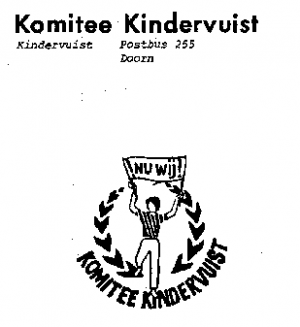
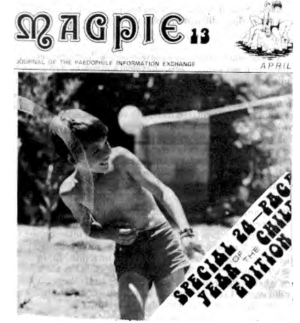
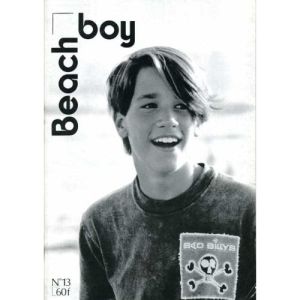
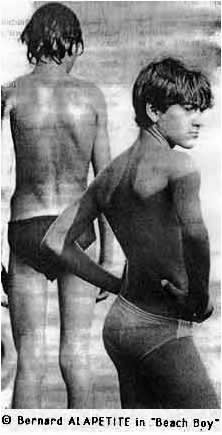
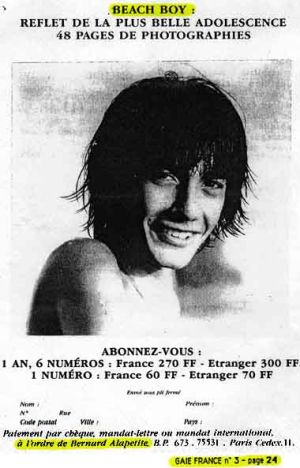
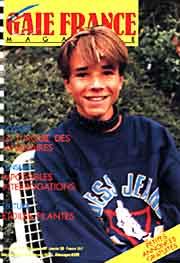

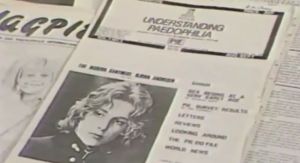
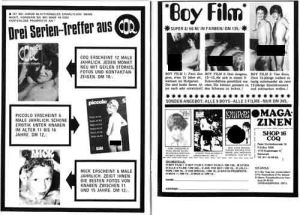
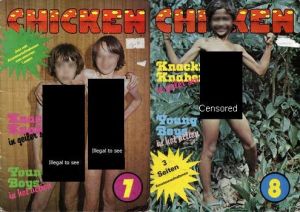
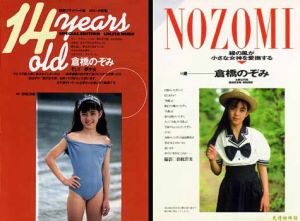
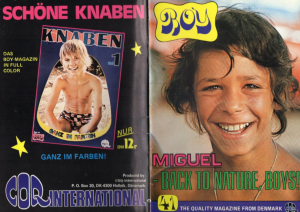
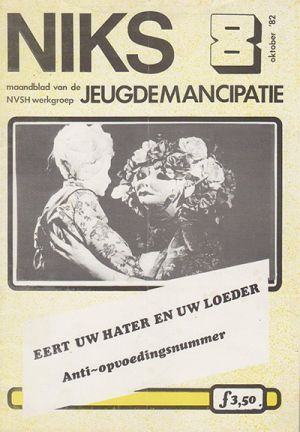
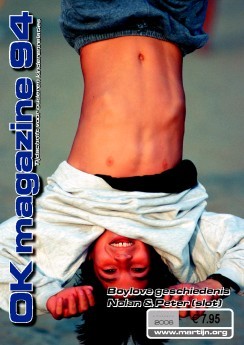
Where nudist and erotic titles are mentioned, all such publications have ceased their activities. We mention their titles only in service of the historical record and advise against any attempts to obtain copies of material that may violate local statutes.
History
The first known publication devoted exclusively to minor-attraction was the scholary journal International Journal of Greek Love, edited in the USA between January 1965 and November 1966 by the famous numismatist Walter Breen.[1] According to the blurb inside the journal, IJGL was a "quarterly devoted to literary, historical, sociological, psychological and related studies centered around the phenomenon of Greek love, defined as the love between man and adolescent boy." Despite its small circulation, the IJGL managed to have a considerable impact on gay and lesbian scholarship. As expected, the best researched articles are those that have been most quoted. Jonathan Drake's article on boy prostitution in Turkey[2] remains one of the most cited sources for homosexuality in this country, while Hammond's article on Paidikion,[3] an anonymous 570 page pederasty manuscript ostensibly written by Kenneth Searight c. 1917,[4] and Bradley's survey of lesbian "Greek Love",[5] are two other contributions that have been discussed.
Between the late 1970s and early 1980s, in countries like Denmark, Germany, Netherlands, Sweden and the United States, taking advantage of liberal laws that allowed the distribution of Child Pornography, were published some legal child porn magazines as such Lolita,[6] Piccolo, Boy and others.[7] In some cases, commercial producers such as Color Climax Corporation took over its distribution.[8] In the US were produced magazines such as Nudist Moppets, which showed naked children three to twelve, and Lollitots, which showed naked girls eight to fourteen years old. The USA made illegal in 1977 using children for pornography, however, some of those magazines had never involved any kind of sex act in the first place. Commercial child pornography ceased in Denmark in 1980 when Danish laws against it were passed.[9] The last child pornography magazines out of the Netherlands appeared in 1982.
In 1979 appeared the first issue of PAN: A Magazine About Boy-Love,[10] an international non-pornographic magazine about boylove published in English in Amsterdam by Spartacus, containing articles, photos of boys and other content of interest for boylovers. In total, 21 issues were published until December 1985. Experts such as Frits Bernard and Edward Brongersma submitted contributions.
During the 1980s, in parallel with the newsletters of the various boylove and minor-attracted people's organizations, many magazines were published more or less connected with these movements, such as Palestra[11] (1985) or Gaie France (1986–1993), gay magazine close to the French New Right, founded by Michel Caignet. Also published, were a large number of photographic journals: Backside[12] (1983–1985), Beach Boys (1985–1986), Eklat (1985) and Photokid (1986).
In 1987, Paidika: The Journal of Paedophilia was launched in the Netherlands - a scholarly journal, which took a positive scholarly approach towards the study of pedophilia (in the less age-bounded sense used by activists at the time).[13] From the beginning, Paidika was different from other pedophilia-related publications. It had a professional layout and an impressive editorial board which reviewed the submissions to the journal. During its nine years of publication, Paidika managed to remain faithful to Bullough's (1990, 320)[13] observation and publish a great number of well researched scholarly articles. D.H. Mader's study of pederasty in the Bible[14] and Robert Bauserman's cross-cultural study of boylove[15] are two much quoted pieces. Moreover, what we know about "pedophiles" like Karol Szymanowski[16] and Jacques d'Adelsward-Fersen[17] are through articles published in Paidika. The journal was sometimes attacked and discredited as a "pedophile magazine".[18] The fact that it had an activist aspect allowed many people to downplay the importance of research published in the journal. Bullough and others were attacked for being in its editorial board, while "Dr" Laura Schlessinger and others tried to discredit academics that have published or given interviews in Paidika, like Bruce Rind, Robert Bauserman and Ralph Underwager.[19][20][21]
In 1993, the Amikejo Foundation of Netherlands published the first issue of Koinos, a bilingual magazine in English and German about the beauty of male adolescents. It contains articles on art and politics, academic essays,[22][23] interviews, reviews of books and films, stories and photos of boys, with contributions from several professional photographers. Its name refers to the Koine Greek, the common standard dialect used during the Hellenistic period. It was published every four months and could be purchased through international order and a limited number of distributors in the Netherlands and Germany.
Between 2006 and 2010, the Swede Karl Andersson edited Destroyer, a gay magazine focused exclusively on boys and younger men.[24] The magazine, containing features, photos, essays, interviews, reviews, columns, culture articles and fiction, was printed and officially published in the Czech Republic, but distributed globally through its website. It has received a lot of criticism from the media and child-protection professionals for allegedly "sexualising" children,[25] but Andersson has been quick to defend his publication and gives interviews to argue against his critics.
List
This is far from an exhaustive list, and is biased towards English-language publications. See, for example, Frits Bernard's list of publications in 1985, mentioned in our external links at the foot of the page.
Print Magazines
In rough reverse chronological order of first publication.
The Broadcast
News and politics-oriented letter which is mailed out to over 500, including incarcerated Boy Lovers. See BL Library.
Destroyer, Breaking Boy News, and The Lover
Teen-boy content. Nominally a gay magazine. Karl Andersson also published Breaking Boy News and The Lover which were oriented as low and high-brow alternatives to Destroyer at later dates.
Koinos Magazine
Defunct Dutch magazine in English. Photographic features on boys - non-erotic. Legal in most or all jurisdictions.
Gayme Magazine
Teen BL interest, with serious features. Said to have lasted 4 years or so, supported by and distributed by NAMBLA[26] staff:
- "The person who edited the Bulletin in the early 90s, it's most high brow and critically favored period (as in numerous famous or quasi famous authors reviewed it and remarked on the great content), subsequently founded and edited Gayme. I think it was a sort of experiment to see how much traction a magazine could get with the gay community if it was aimed at TBLs and did not have the N word on the cover."[27]
Boy-Love World Quarterly Magazine
A NAMBLA breakaway project, printed by Ganymede International, Maastricht, The Netherlands (Issue 1, April 1986).
Zeitschrift für die Emanzipation der Pädophilie
Published by Krumme13.
Uncommon Desires
A very early girllove publication, going back to the late 80s.
IPCE Newsletter
Ipce's long-running publication. Activism, news and academia.
Corriere del Pedofili
Published in Italian by Gruppo P.
Paidika
Academic journal of pedophilia.
Minor Problems
Continuity magazine of the British Pedophile and Hebephile movement, following the closure of PIE.
L'Espoir
Centre de Recherche et d'Information sur l'Enfance et la Sexualité (CRIES), 1982-1986. Founded by Philippe Charpentier. It was destroyed in a sensational conspiracy trial which resulted in the extinction of any pedophile movement in Belgium and France. The group published the magazine L'Espoir.[28]
Le Petit Gredin
French magazine targeted at boylovers.
Befreite Beziehung (later Die Zeitung)
Deutsche Studien und Arbeitsgemeinschaft Pädophilie.
NAMBLA Bulletin and Journal
Now defunct. Long-running magazine of the historically pertinent activist organization. Available from NAMBLA, and some private archives exist.
OK and Martijn Magazines
The publication of Vereniging MARTIJN.
Ny Sexualpolitik
Published by Danish Pedophile Association.
Rockspider
Australian 80s magazine named after the local slang, equivalent to "nonce". Activism and defiance. Published by the Australian Paedophile Support Group, Colin Nugent had what may or may not be the last copies, which were seized by the government and destroyed. AMBLA and BLAZE may have had publications.
Nusletter
Published by the CSC activism and information sharing organization. We have private archives.
Unbound
American pederastic journal from the 80s, based in San Francisco. Ran from 1986 (Vol. 1, Iss. 1), to 1990 (Vol. 2, Iss. 4).
NIKS
Old Dutch Magazine.
Magpie
Publication of the Paedophile Information Exchange. They also distributed offshoots such as Understanding Paedophilia and Childhood Rights.[30] It's hard to find copies, but we suggest readers look here for archives and excerpts.
Contact!
According to "Alcibiades", a former PIE member, this was a cheaply produced A5 newsletter for PIE which consisted entirely of members’ letters. After the 1981 PIE trial had rendered it illegal for rank & file members to communicate directly by post, this was the only means to enable them to hear one another’s voices prior to the advent of internet bulletin boards. Published from 1982/83, Contact! 6 resulted in the second PIE trial, of editor Steven Freeman and two committee colleagues, Roger Nash and David Joy, on charges of “incitement” to illegal sexual activities with children – it had contained a letter examining the question of intercourse. Nash and Joy (neither of whom were connected with the editing of that paper) were imprisoned in 1984. Steven Freeman left the UK prior to the trial to seek political asylum in Holland, but six years later was deported back to the UK and stood trial in 1991. He, too, was imprisoned, for “publishing an obscene article”. PIE wound up shortly after the 1984 trial, its committee too demoralized to continue.
PAN
Paedo Alert News. English language magazine published from Amsterdam covering news topics in the pedophile movement.
Spartacus International Gay Guide
Nominally a gay travel guide, but helped organize holidays for indulgent MAPs. Still published, but without its former associations.
Palaver
Paedophile Action for Liberation (PAL) published this magazine in the UK.
Le Gai Pied
Gai pied, or Gai pied hebdo, was a French gay magazine (1979-1991), founded by Jean Le Bitoux. It's name was suggested by Michel Foucault and, during the Jacques Dugué affair[31], the magazine published supportive statements. The magazine denounced “the new clothes of hatred”, and published an interview with a minor who had relations with Jacques Dugué. The minor refused the status of victim, and speaks of his "affection" for Dugué: "society considers the pedophile as the absolute pervert (...) the one who perverts childhood by giving him a different discourse, by teaching him something other than what they themselves or the school teach him, by showing him how to act or think differently. This is what is unbearable".[32]
Signe de Piste and Art Jeunesse
Signe de Piste ("Track Sign", 1976-circa 1984) was a French boy scout magazine published in Montréal, Canada. It featured scantily clad, non-nude photography and art of boy scouts, accompanied by text about scout activities. The same publisher also created Art Jeunesse (Youth Art), a series of non-nude photo-only booklets featuring named boy scouts who appear to be intended as attractive to readers.[33] The magazine is extremely obscure, and bears the same name and logo as a longstanding publisher (since 1937) of popular adventure stories aimed at youth. The publisher's website shows 1976, the year these publications began, as a gap in the their history, where "Des associations similarities vioent le jour en Belgique, en Suisse, au Canada" (Similar associations have emerged in Belgium, Switzerland and Canada).[34] While future research may determine the answer, it remains unclear, confusing, and open to debate about which organization / group in-fact published Signe de Piste and Art Jeunesse during this time.[35]
NAFP Bulletin
Norwegian Paedophile Workgroup.
Better Life magazine
1970s American precursor of the journals and newsletters released by later paedophile groups, “Better Life” (= “BL”) published in Beverly Hills California, was an A4 magazine of artwork, photos, essays and poetry. The Jan/Feb 1976 edition (vol 3/1) carried a Frits Bernard article “The Phenomenon of Pedophilia” (reprinted in the June 76 C.S.C. Nusleter).
Boys International
Early 1970s British nudist magazine focusing on boys in everyday situations such as swimming. Very little is known about it.[36]
Kalos
Pederastic revival journal - 1970s. One issue only.
International Journal of Greek Love
1960s pederastic revivalist journal.
Online Activism
Uncommon Sense
Activist webmagazine affiliated with Newgon, and coinciding with the early second-wave of the MAP Movement. Short-lived, but preceded and succeeded by a team blog of the same name.
Modern online Pedophile/Hebephile magazines
Modern online magazines tend to cater to MAPs with a low pedohebephilic AoA. This is thought to be because various "teen" publications such as XY Magazine, instagram accounts and popular culture outlets more effectively cater to high hebephilic AoAs, or are covertly designed with hebephilic MAPs in mind. In rough, reverse chronological order:
Imagine Magazine

Boy-watcher type content, running close to 100 issues. Based around user-submitted fiction on boys' mildly titillating early experiences with other boys. Also features music, movies, humor, video games etc of interest to BLs, but uses the term "LGBT"/"Gay" in place of "Boylove", much like the forums and community surrounding it. Said small community seems to focus on utilizing what is already legally available to boy-admirers, rather than entertaining social change - which our reviewer suspects is banned from the community. First launched in August, 2011 and was created by members of the Shack Forum.[37]
We Are Child Love
Proposed gender-neutral pedophile-oriented magazine mirroring the style of Alice Lovers. We are likely to be able to archive this magazine once it is published.
Ethos Magazine
Ceased publication in 2023. Pedophile-focused photographic boy content (NN/"SFW"/candid and generally excludes teens) and serious features.
- Ethos Magazine via BL Library - Official site - some local statutes may criminalize posed NN material as per a typical Ethos Magazine.
Fawnlet(.com)
The successor to Ethos.
Alice Lovers and True Innocence Magazines
Girllove magazine covered in our article on its parent, Visions of Alice (archives available).
Modern Boylover Magazine (Boylover.net)
Boylover.net was known to publish a magazine, which went on after its closure, and is now archived:
Youth Attracted Network International
A short-lived effort in 2003. Little exists in the archive.
Fresh Petals
Defunct. Said by Thomas O'Carroll to be an online girllove magazine of the late 90s and early 00s, not much information exists about it.
Photographic/Erotica/Nudist Print Magazines (not currently published)
Little is known (or, perhaps shared) about these titles from the 1960s and 70s, however many such publications were circulated, featuring both boys and girls. Within Scandinavia in particular, they were said to operate openly and on a commercial scale, prior to Child Pornography legislation. Color Climax Corporation produced legal youth erotica in this era. Inside the pages of child porn magazines sold in the seventies and eighties at sex shops you could find the publishing company address and contact phone number as well as a copyright notice. It is believed that there wasn't a huge recognized demand for them, perhaps due to the quasi-illicit nature of the publications.
Holland, Denmark and Germany produced legal child porn magazines and films from the late '60s up to mid '70s, few such productions were made in the United States. Commercial child pornography ceased in Denmark in 1980 when Danish laws against it were passed, the last child pornography magazines out of Holland appeared in 1982.
The US was home to magazines such as "Nudist Moppets" which showed naked children three to twelve, and "Lollitots" which showed naked girls eight to fourteen years old. The USA made CP illegal in 1977, however some of those magazines remained ambiguous even then, as they did not feature sexual activity.
Coq d'Or
Coq d'Or (founded 1969) was a color magazine featuring photos of nude adolescents and young men published by Lyric International.
Naked Boyhood
"Naked Boyhood" - Nudist content published in the 70s by Lyric International, along with other titles listed.
Nudist Moppets
US Pedophilic age-range nudist magazine.
Zipper
An American Gay-Interest magazine that contained a lot of adolescent material:
Piccolo
(COQ) International - a Danish firm. Erotic magazine. Contained a mix of hardcore and softcore child porn photographs.
Boy
(COQ). Erotic magazine. "Boy", consisted of mere nudity, they also produced another magazine called "Uncle Joe".
Chicken
American Boy Erotica.
Boy Art Magazine
Photographic Journal - US.
Photokid
1986. French Photographic magazine.
Jean's
1985. French Photographic magazine.[38]
Backside
(Harold Giroux), 1981-86. Photographic magazine. ISSN 0755-1878.[12]
Beach Boy
1985-86. French Photographic magazine.
Eklat
1985. French Photographic magazine.
Lolita Magazine
1970-1984. Dutch Erotic magazine published by Joop Wilhelmus, along with Chick Magazine.
Anna and her Father
Also, "Bambina Sex", Danish magazines?
Lollitots
US magazine that showed naked girls eight to fourteen years old.
Martin
(Entis Verlag), 1990s. Photographic magazine.
Japanese Photo Journals
Japan was a late adopter of western Child Pornography legislation and its relative lack of sexual violence during this liberal period stands as a clear example of the ineffectuality of such laws. Photo journals have existed, which sometimes featured nude preteens - permitted, as they had no pubic hair. Nowadays, the trend continues, with worksafe idols type content.
See also
External links
- Youthlove Archive - Assorted scans collected by a researcher.
- Brongersma Archive - Numerous PDF scans.
- Paedophilia: A factual report - By Frits Bernard. Contains a list of other publications contemporary to the year of publication (1985). Search "places of publication".
- Ipce - More exhaustive list of erotic publications.
- PRD - Completely outdated list of (completely legal at the time) publications focusing on the old-school Nudist Movement and its appeals to Minor Attracted People.
References
- ↑ Norton, Rictor; Crew, Louie. "The homophobic imagination: an editorial". College English, Vol. XXXVI, nr. 3 (November 1974), pp. 272-290.
- ↑ Drake, Jonathan. "'Le Vice' in Turkey". International Journal of Greek Love. Oliver Layton Press, Vol. I, nr. 2 (November 1966), pp. 13-27
- ↑ Hammond, Toby. "Paidikion: A paiderastic manuscript". International Journal of Greek Love. Oliver Layton Press, Vol. I, nr. 2 (November 1966), pp. 28-37.
- ↑ Aldrich, Robert. Colonialism and homosexuality. New York: Routledge, 2003, pp. 280-281.
- ↑ Bradley, Marion. "Feminine Equivalents of Greek Love in Modern Fiction". International Journal of Greek Love. Oliver Layton Press, Vol. I, nr. 1, 1965, pp. 48-58.
- ↑ Howitt, Dennis; Kerry, Sheldon. Sex Offenders and the Internet. New York: John Wiley & Sons, 2007, p. 75. ISBN 0470028009.
- ↑ Santiago, Pablo. Alicia en el lado oscuro (Spanish). Madrid: Imagine, 2004, p. 335. ISBN 84-95882-46-9.
- ↑ Jenkins, Philip. Beyond Tolerance: Child Pornography on the Internet. New York: NYU Press, 2001, pp. 31-32. ISBN 0-8147-4263-7.
- ↑ The Aftermath of the Great Kiddy-Porn Panic of '77.
- ↑ Califia, Pat. Public sex: The culture of radical sex. Berkeley: Cleis Press, 1994.
- ↑ Sommaire. Palestra, 1985. (French)
- ↑ Jump up to: 12.0 12.1 Marceau, Willy. "Backside". Le Petit Gredin, GRED, nr. 6, spring 1985. (French)
- ↑ Jump up to: 13.0 13.1 Bullough, Vern L. "Review of Paidika: The Journal of Paedophilia". Journal of Homosexuality, Vol. XX, nr. 1/2, 1990, pp. 319-320.
- ↑ Mader, Donald. "The Entimos Pais of Matthew 8:5-13 and Luke 7:1-10". Paidika: The Journal of Paedophilia, Vol. I, nr. 1, sommer 1987, pp. 27-39. ISSN:0167-5907.
- ↑ Bauserman, Robert. "Man-Boy Sexual Relationships in a Cross-Cultural Perspective". Paidika: The Journal of Paedophilia, Vol. II, nr. 1, sommer 1989, pp. 28-40. ISSN:0167-5907.
- ↑ Kennedy, Hubert. "Karol Szymanowski: His Boy-Love Novel, and the Boy He Loved". Paidika: The Journal of Paedophilia, Vol. III, nr. 3, winter 1994, pp. 26-33. ISSN:0167-5907.
- ↑ H. L., Will. "A Shrine to Love and Sorrow: Jacques d'Adelswärd Fersen (1880-1923)". Paidika: The Journal of Paedophilia, Vol. III, nr. 2, winter 1994, pp. 30-58. ISSN:0167-5907.
- ↑ Dallam, S. J. "Science or Propaganda? An Examination of Rind, Tromovitch and Bauserman". Journal of Child Sexual Abuse, Vol. IX, nr. 3/4, 2002, pp. 109-134.
- ↑ Salter, Anna. Predators: Pedophiles, Rapists, And Other Sex Offenders. New York: Basic Books, 2004, p. 64. ISBN 0-465-07173-2
- ↑ Whitfield, Charles; Silberg, Joyanna. Misinformation concerning child sexual abuse and adult survivors. New York: Routledge, 2002, p. 124. ISBN 0-7890-1901-9.
- ↑ Lilienfeld, Scott O. "When Worlds Collide: Social Science, Politics, and the Rind et al. (1998) Child Sexual Abuse Meta-Analysis". American Psychologist, Vol. III, nr. 57, 1998, pp. 176-188.
- ↑ Radical Reconsideration of the Concept of Child Sexual Abuse. Ipce.
- ↑ Youthful Sexual Experience and Well-being. Ipce
- ↑ Andersson, Karl. Gay Man's Worst Friend - the Story of Destroyer Magazine. Entartetes Leben, 2011. ISBN 91-633-6899-4.
- ↑ The Beautiful Boy, The Destroyer: Sexradikalers förhandlingar om tidskriften Destroyer – en intervjustudie om anständiga bögar, fula gubbar och sexualiserade barn. University of Stockholm. (Swedish)
- ↑ NAMBLA Pubs List
- ↑ and Gayme - Harry's Friend, BC
- ↑ "Les réseaux pédo-criminels en Belgique avant l’affaire Dutroux" (in French), Françoise van de Moortel.
- ↑ Duraz, Serge. "En Allemagne" (French). Le Petit Gredin, GRED, nr. 3, sommer 1983.
- ↑ O'Carroll, Tom. "The Beginnings of Radical Paedophilia in Britain". In: Paedophilia: The Radical Case. London: Peter Owen, 1980. ISBN 0-7206-0546-6
- ↑ https://fr-m-wikipedia-org.translate.goog/wiki/Affaire_Jacques_Dugu%C3%A9?_x_tr_sl=auto&_x_tr_tl=en&_x_tr_hl=en-US&_x_tr_pto=wapp
- ↑ Jean Berard, From the liberation of children to the violence of pedophiles. The sexuality of minors in the political speeches of the 1970s. Gender, sexuality & society [Online] (Spring 2014).
- ↑ Signe de Piste and Art Jeunesse gave the same address as follows: Caste postal 204, Succursale S, Ville Emard (Montreal) P.Q. Canada H4E 4H7.
- ↑ Quoted from an English translation of the publisher's timeline.
- ↑ The ISSN numbers of print copies of Signe de Piste and Art Jeunesse during this time, lead to records verifying the Magazines' existence, but offer little detail and sometimes confuse the picture. For example, the ISSN of Art Jeunesse is given as 0383-0853, which matches a publication of a different name "Scout-jeunesse" (Youth scout). Did the same magazine go by different names or, having started in 1976 according to available records, did Youth Scout become Youth Art? By contrast, the ISSN Worldcat record for Signe de Piste matches the print version, but its dating from 1980 may be inaccurate. A May-June 1984 Issue, for example, states in English that the publication has been "on the market" for "8 years", meaning that the magazine had been sold since 1976. This date conveniently matches the official website of the more well-known magazine of the same name, which states that in 1976 "Des associations similarities vioent le jour en Belgique, en Suisse, au Canada" (Similar associations have emerged in Belgium, Switzerland and Canada). They may well have been separate publishers.
- ↑ Publication regularity and number of issues unknown. Published by S&H Publications, 39 Lowlands Road, Harrow, Middlesex, England.
- ↑ Imagine Magazine
- ↑ "Livres et revues" (French). Le Petit Gredin, GRED, nr. 6, spring 1985.
- Archival
- Archival: Political Movement
- Archival: Lists of Archived Material
- Archival: Magazines: Whole
- Archival: Magazines: BL
- Archival: Magazines: GL
- Archival: Magazines: Nongendered
- Archival: Magazines: American
- Archival: Magazines: Dutch
- Archival: Magazines: British
- Official Encyclopedia
- Censorship
- Gay
- Child Pornography
- Cyber Activism
- Research
- Research on Minor Attraction
- History & Events
- History & Events: British
- Archival: Magazines: French
- Archival: Magazines: German
- Archival: Magazines: Japanese
- Archival: Magazines: Danish
- Archival: Magazines: Australian
- Archival: Magazines: Belgian
- Archival: Magazines: Swedish
- Archival: Magazines: Italian
- History & Events: American
- History & Events: Dutch
- History & Events: German
- History & Events: Danish
- History & Events: French
- History & Events: Australian
- History & Events: Belgian
- History & Events: Italian
- History & Events: Swedish
- History & Events: International
- History & Events: 1960s
- History & Events: 1970s
- History & Events: 1980s
- History & Events: 1990s
- History & Events: 2000s
- History & Events: 2010s
- History & Events: 2020s
- Publications & Documents
- Pubs: Research/Papers
- Pubs: Magazines & Newspapers
- Pubs: Political Movement
- Lists and Special Articles
